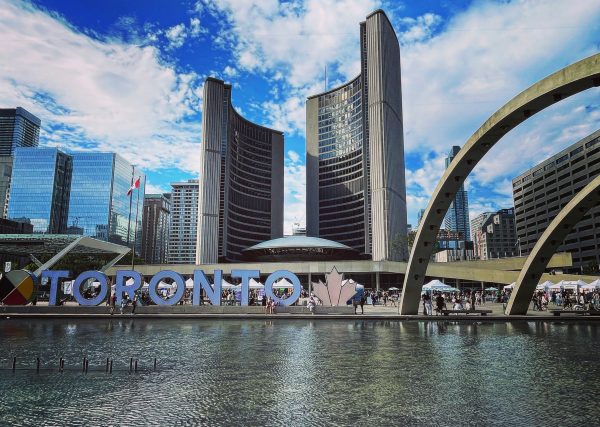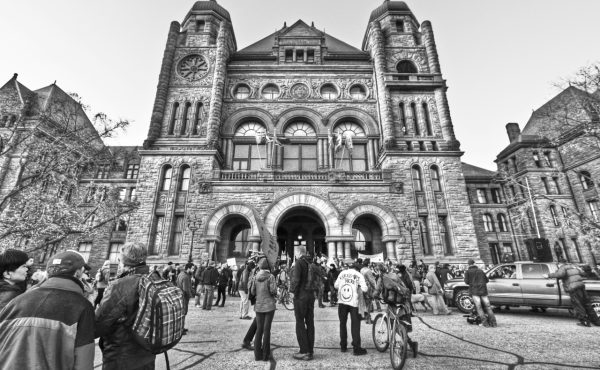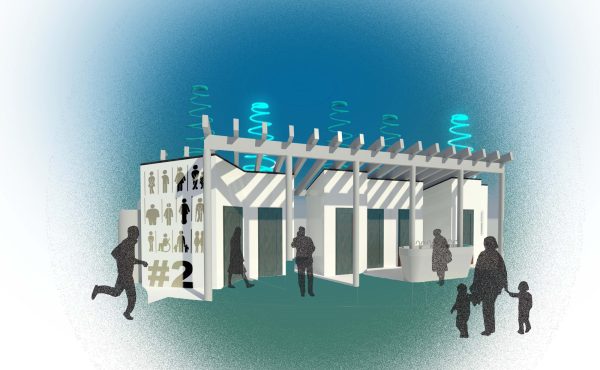There’s plenty to applaud about the proposed revenue measures that will go before an emergency session of Mayor Olivia Chow’s executive committee this week. In particular, I like the recommendations that deliver two policy goals for the price of one.
For example, while the city is overly reliant on a frothy residential real estate sector for revenues, the use of a sliding scale land transfer tax on expensive homes is a defensible means of both generating income and imposing some drag on price escalation.
Similarly, the move to wrest parking tax rates from the control of individual councillors holds out the potential to boost Green P revenue while also making better use of road pricing to increase transit usage and discourage driving.
Lastly, the proposal to impose a commercial parking levy — on lots, malls, etc. — is not only long overdue (and well-studied), but should also serve to boost transit ridership, thereby reducing the amount city council has to spend to subsidize the TTC.
However, I’d argue that the city could make more use of its existing revenue tools — e.g., a vehicle registration tax, and taxes on cigarettes and alcohol — before engaging the provincial government in yet another painful and probably fruitless negotiation over establishing a municipal sales tax, as the staff report (and Chow) recommends.
Yet here’s the other critical element that is missing from the report going to executive committee: What does council intend to do with these new funds it intends to generate?
There is, as in all things municipal, a dull procedural answer, which is that the decision about allocating fiscal resources will be made during the budget process, blah blah blah.
I don’t want to be overly dismissive of established governance and consultative processes. At the same time, it can’t be said too often that one of the political right’s most enduring and effective critiques is that governments love to raise taxes but then don’t bother demonstrating what those funds are used for (besides bloating the civil service). Conversely, when residents can really see that their tax dollars are improving quality of life, then they’ll be far more willing to accept not only taxation, but the institutions tasked with delivering services.
Chow’s positionality here holds out both opportunity and risk.
She’s inherited the leadership of a municipality that has left tens of billions of dollars on the table over the past 12 years. The fact that she got elected on a platform that included a pledge to increase taxes suggests that many Torontonians finally recognize that the Rob Ford/John Tory approach to budgeting and austerity has created a fraying, shabby, malfunctioning city.
At the same time, the list of accumulated problems is so vast that it will surely take many years and probably a few more mayors to sort them out. Whatever Chow does will represent at best a shift in direction and then the beginning of a long-term repair job.
For that reason, I’d argue that it is incredibly important for Chow and her team to make sure they’re explaining to Torontonians why these measures are necessary, and how the new revenues will be spent. To be clear, I’m not talking here about over-broad statements about long-term fiscal plans or partnerships with the feds and the province.
Rather, when Chow stands up in council in early September to sell this package of revenue tools, I want to hear her tell us precisely how these funds will be used to begin reversing the years of dis-investment we can see all around us — on the TTC, in public spaces, in the beggaring of municipal services, etc. I think she should be able to answer the question, and do so with specificity.
There’s no shortage of reliable evidence about what’s gone sideways. In March, the city commissioned Ernst & Young to compile a report on its long-term budgetary pressures, which is the source of the $46.5 billion shortfall figure that got a lot of media attention last week.
More important in this document are the finer grain details, which reveal the legacy of the warped priorities of the Ford/Tory administrations, e.g. the fact that council earmarked $2 billion to rebuild the Gardiner but still hasn’t identified funding sources for a range of transit and affordable housing outlays or other council approved strategies.
Sorting out these epic mistakes will take years of political and bureaucratic wrangling. But in the short term, as Chow prepares to ask council to sign off on new revenue tools — not just to generate more revenue, but also to show the feds and the province that council is prepared to spend some of its own political capital in order to lure them to the table — she should be able to explain how these funds will be spent, and do so sooner than later.
Does she want to restore TTC funding? Replenish drawn down reserve funds? Extend hours at recreation centres? Accelerate the replacement of the now-dead Scarborough RT?
Let’s hear the particulars. Taking refuge in the city’s lugubrious budget process isn’t going to cut it. Chow won the election in part by promising to raise taxes. Now, she’s signalled her intention to do just that. But she also has to quickly take command of the ensuing debate by sending very clear signals about her own priorities.
Why? If she doesn’t get in front of the expenditure part of this conversation, the revenue tools measures will become a slow-moving target for those who oppose taxes, and believe that they’ll only impoverish taxpayers. We all know those voices are out there. Chow’s team has got to be prepared to counter them, and do so forcefully, before they have time to coalesce.





One comment
Thanks for this; and I’m definitely wondering about the ‘why not’ to a Vehicle Registration Tax, considering old stats from Vancouver from 1996 said they figgered that each car got a total of $2700 per vehicle, annually. Using the math of a million cars in TO, that’s about a $2.7 billion gifting, though of course the cars are still costly to run despite that help.
As noted in Dylan Reid’s piece earlier this year … http://spacing.ca/toronto/2023/02/23/is-it-time-for-a-vehicle-registration-tax-to-help-fix-our-roads/ it may totally be due to the politics of strong ‘carservativism’ of Mr. Ford, and making it hard to have provincial help on the logistics of a bit of user pay for the private vehicles, thus endearing Mr. F to votorists in all parts of Caronto, who tend to outvote the core anyways. But it does seem that it’s a logical way to raise larger sums ($500 per vehicle = $500M) for both road repairs and transit, and if applied to TO drivers, some of the payin’ of infra etc. could then be shared by 905 drivers who drive in each day, as should be done.
Ensuring that the City’s efforts are well known to the federal level is also key to having a success on the VRT – though the federal level is also carservative, no matter the party.
There’s also some significant proposals on the climate struggle within this process: but it is perhaps badly misguided in having buildings being a fixed and easy target relative to the mobility problems, which an electric car fleet still isn’t going to solve.
And we should be counting concrete within our GHG profile; that would be a good place to start actions, now that it’s really an emergency.